Canyon Tree Frog - Dryophytes (Hyla) arenicolor
Watching Canyon Tree Frogs near Tucson
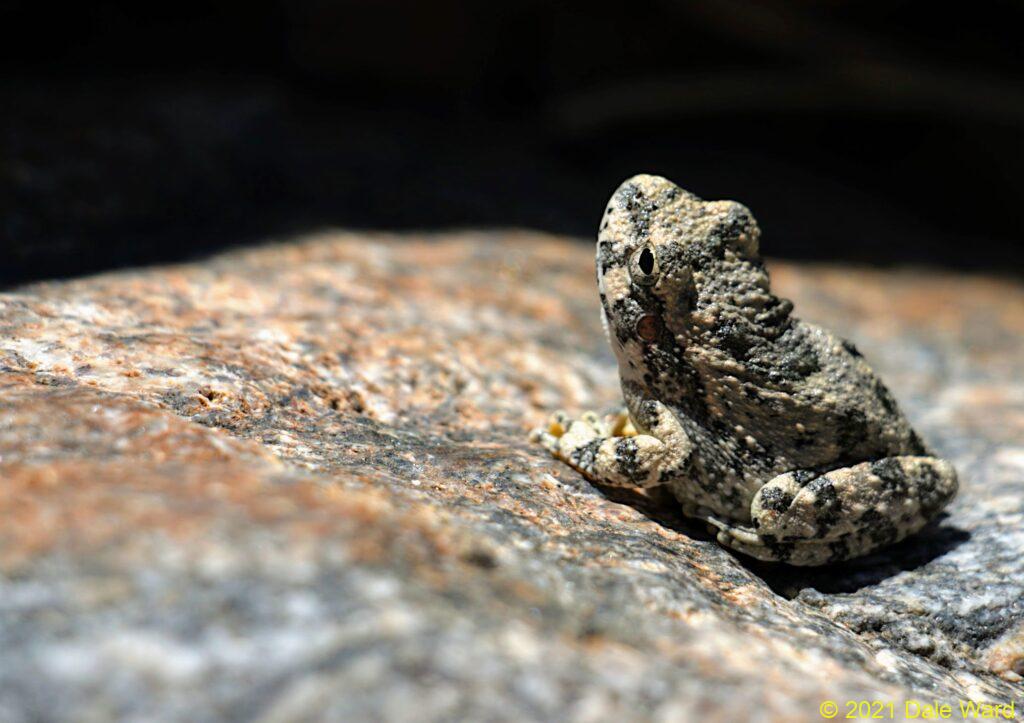 Canyon Tree Frog - _Drypophytes (Hyla) arenicolor_
Canyon Tree Frog - _Drypophytes (Hyla) arenicolor_
On October 20th, 2021, I was in the midst of a whirlwind tour of Tucson, Arizona. I’d come down to visit Saguaro National Park. Unfortunately, I’d arrived too late in the day, and most of the interesting critters were hiding from the sun.
I only had a couple of hours free, so I decided to take a trip to a nearby stream to see if I could find any Canyon Tree Frogs - Dryophytes (Hyla) arenicolor.
When I got to my old frog-spot, I was appalled to see that the Forest Service had rerouted the road, built up a Recreation Area, put up large parking lots (full of cars no less!), and turned it into a Fee Area. The spot was nearly unrecognizable. Tourists yelling, engines revving, dogs barking…it was nuts. It used to be…well…quiet. Oh, those crazy Land Stewards!
I was disheartened by this state of affairs, but I decided to see if I could find the frogs anyway. I parked the Jeep, pausing briefly to admire my hypocrisy in using the very parking lot I’d been complaining about.
But hey. I am large, I contain multitudes. Foolish consistency is the hobgoblin of little minds, right?
I wove my way through the parked cars, then played a real-life game of for-keeps “Frogger”, dodging homicidal cyclists and lumbering RVs to get to the other side of the road.
When I got to the stream it was mostly dry, certainly more dry than I had expected. Even the sand was dry under most of the boulders.
I did find some frogs, though.
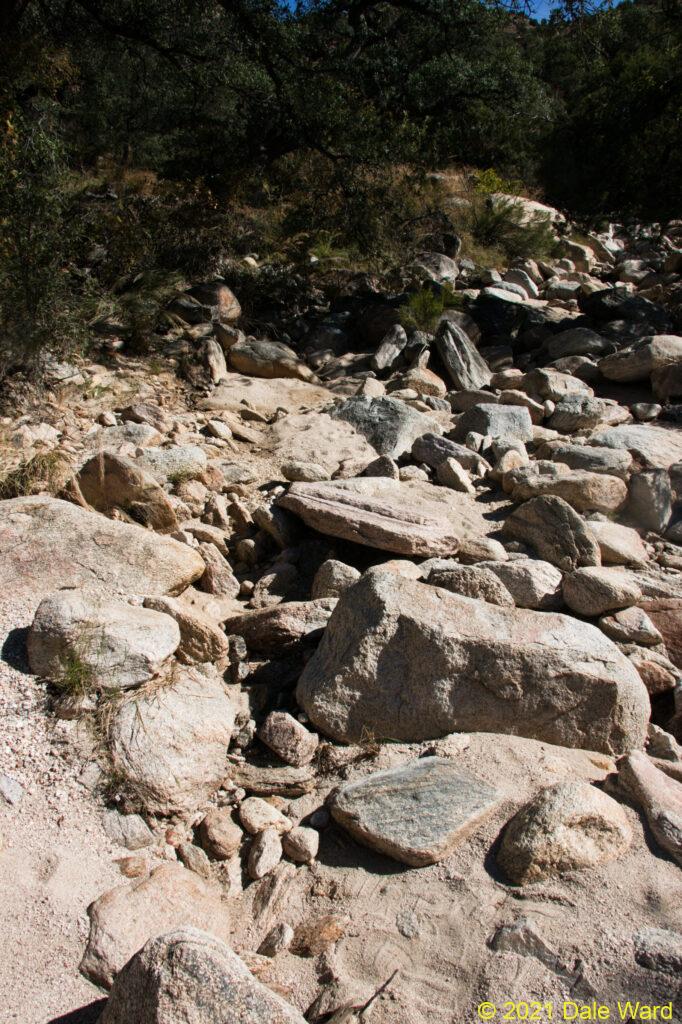 Rocky, dry stream bed containing the frogs.
Rocky, dry stream bed containing the frogs.
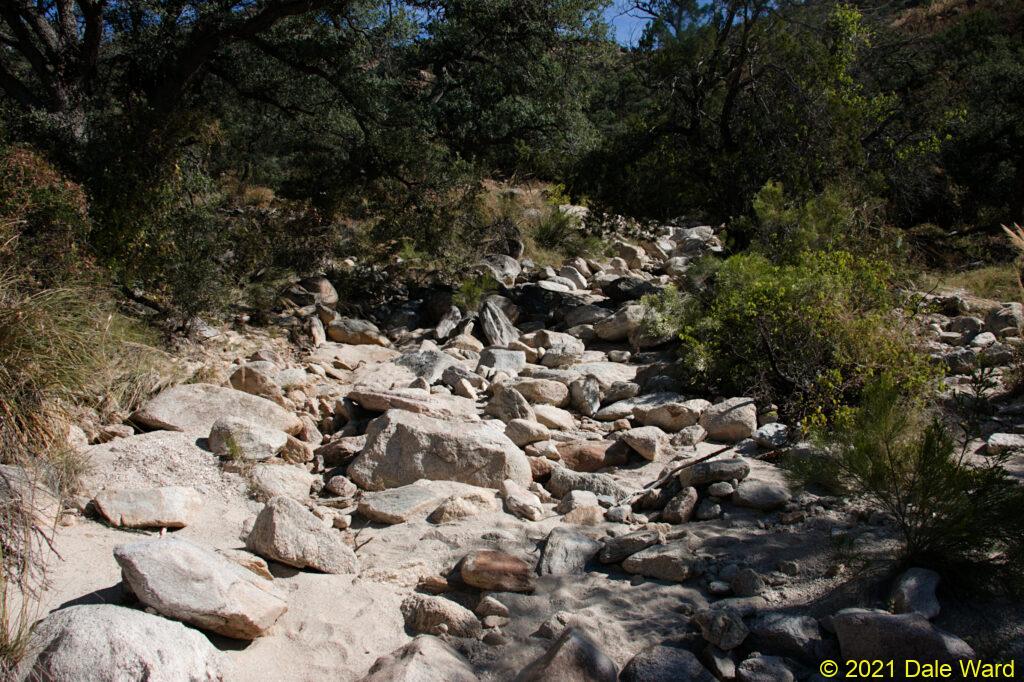 Another view of the rocky, dry stream bed containing the frogs. There were isolated groups of frogs in the dry areas, though most of them were at the pool (which I found later in the trip).
Another view of the rocky, dry stream bed containing the frogs. There were isolated groups of frogs in the dry areas, though most of them were at the pool (which I found later in the trip).
The first one I found was a little fellow at the base of a granite rock.
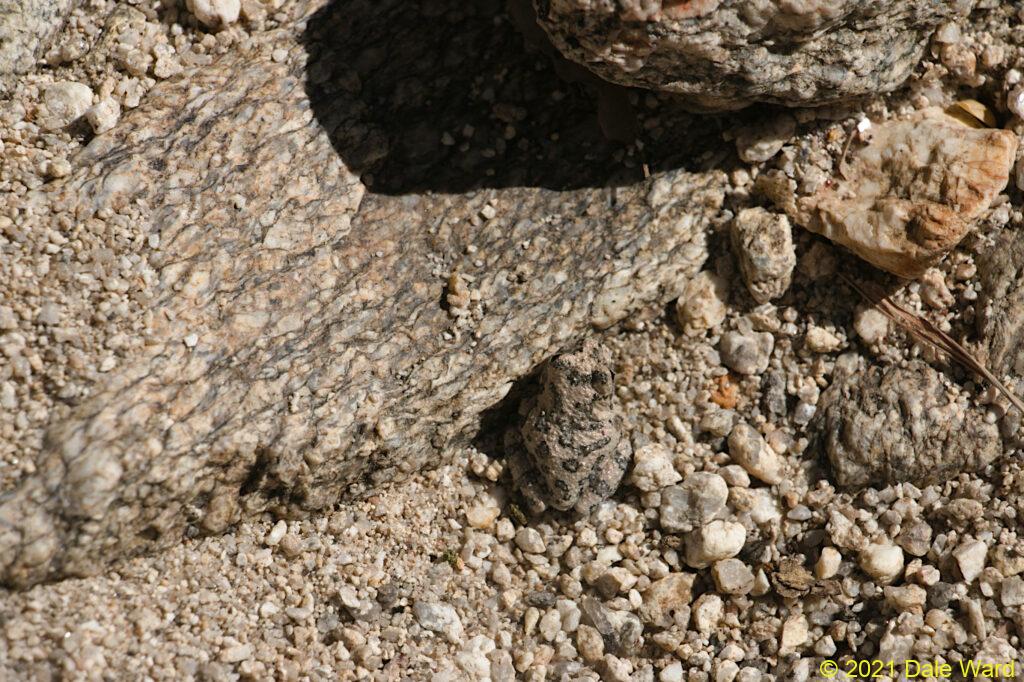 Canyon Tree frog (_Dryophytes arenicolor_) at the base of a granite rock. The frog is just to the lower left of the center of the photo.
Canyon Tree frog (_Dryophytes arenicolor_) at the base of a granite rock. The frog is just to the lower left of the center of the photo.
The frog looked for all the world like just another piece of granite.
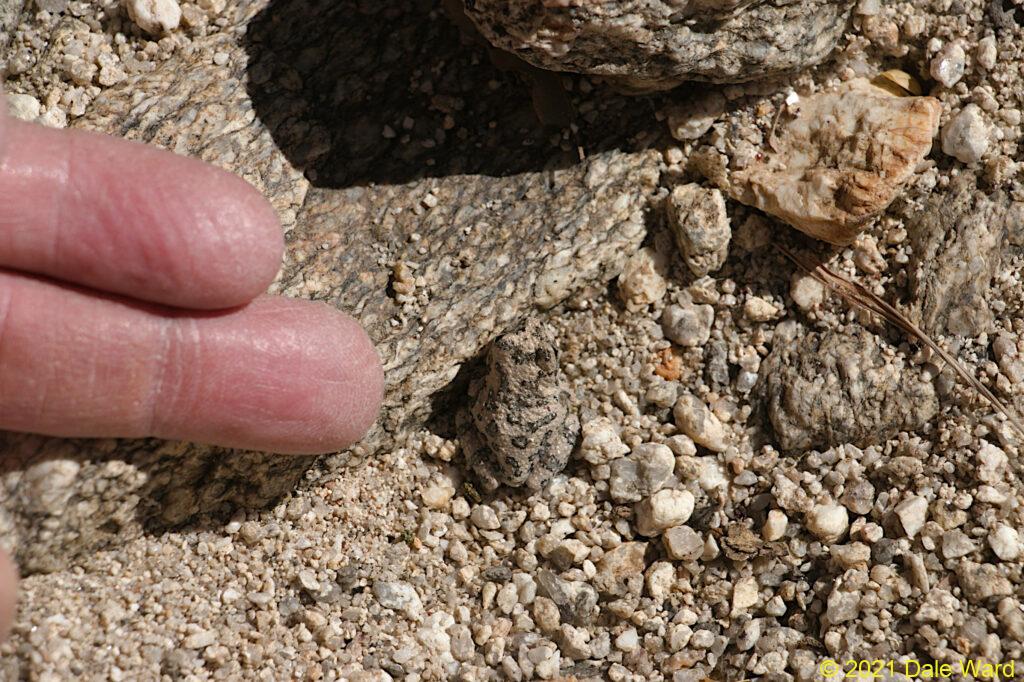 Canyon Tree Frog (_Dryophytes arenicolor_). Same frog as previous photo, but with fingers for scale.
Canyon Tree Frog (_Dryophytes arenicolor_). Same frog as previous photo, but with fingers for scale.
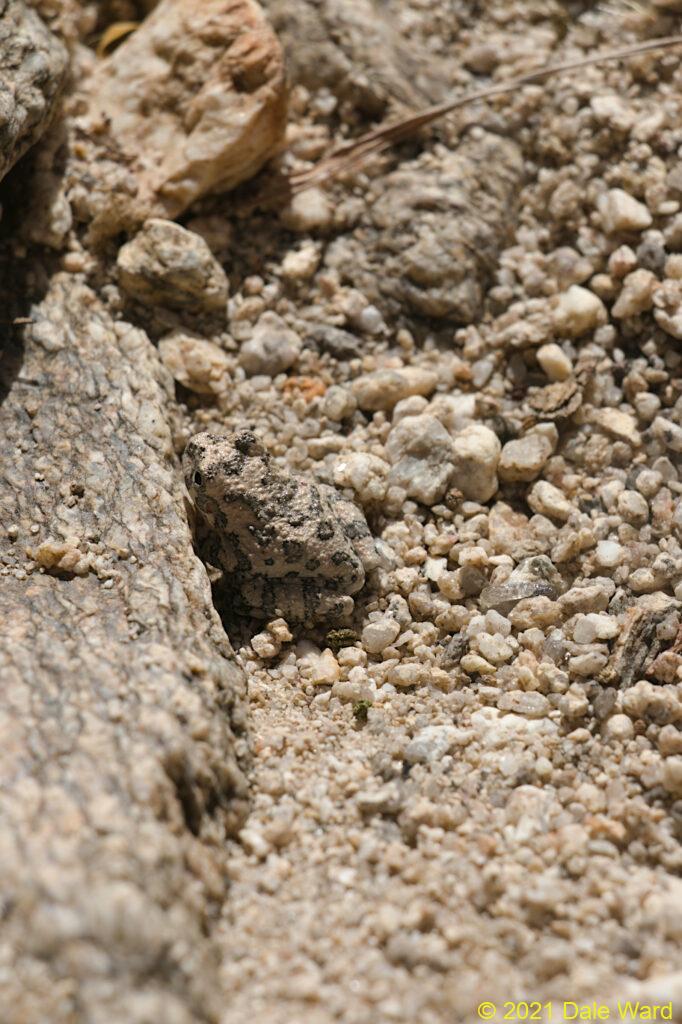 Canyon Tree frog (_Dryophytes arenicolor_) at the base of a granite rock.
Canyon Tree frog (_Dryophytes arenicolor_) at the base of a granite rock.
If you find one Canyon Tree Frog, there’s a good chance that there will be more nearby. Even though the ground was dry, I kept looking, and was soon rewarded with another frog.
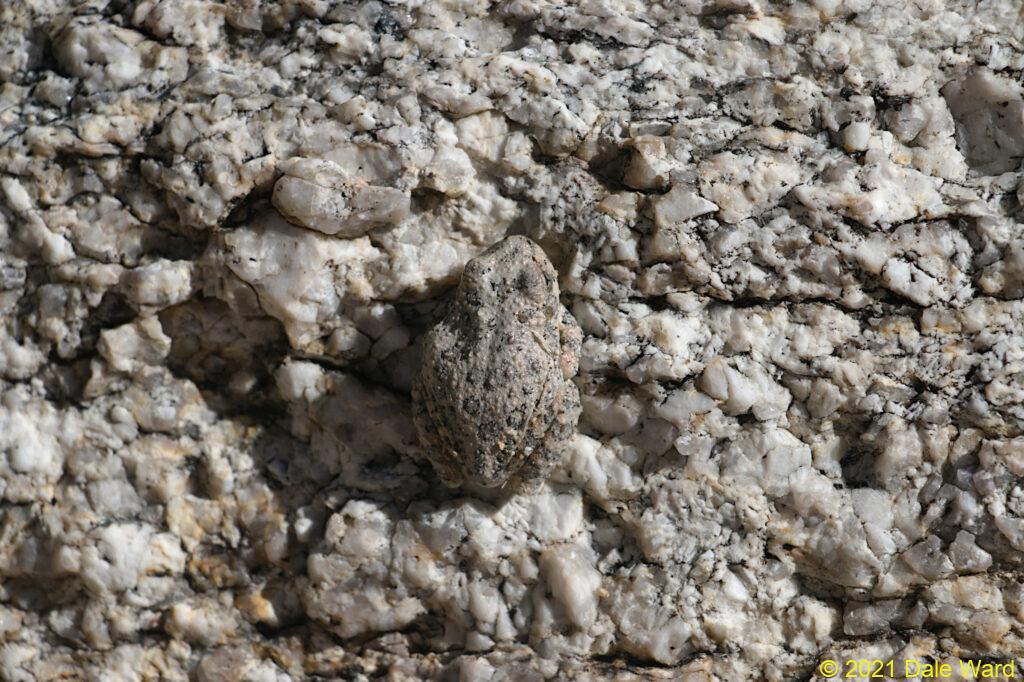 Canyon Tree frog (_Dryophytes arenicolor_) perched on the vertical surface of a rock.
Canyon Tree frog (_Dryophytes arenicolor_) perched on the vertical surface of a rock.
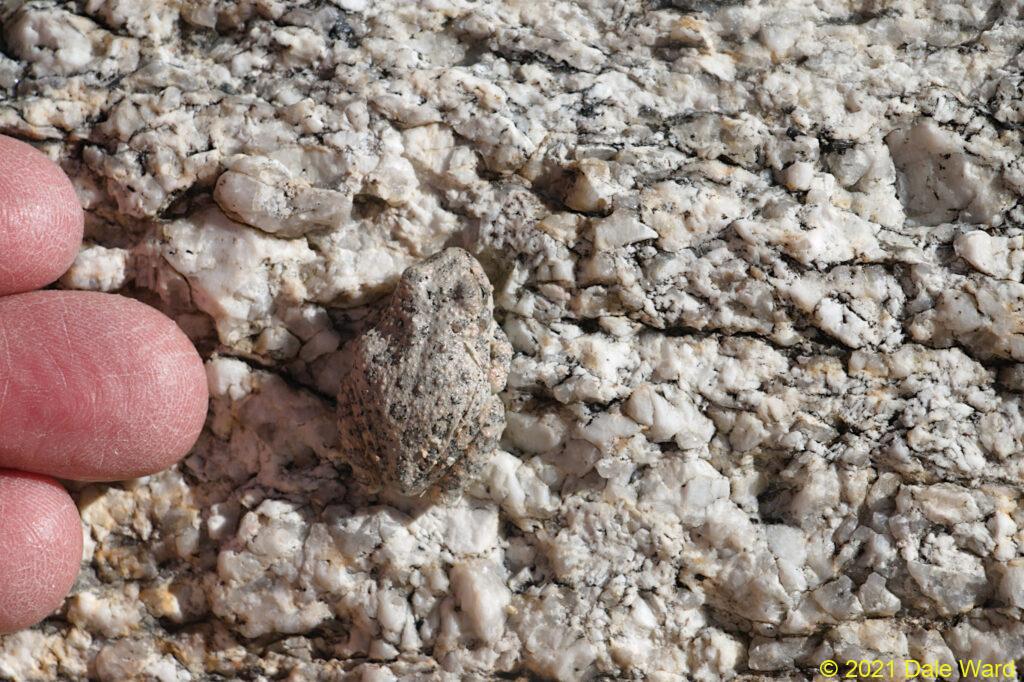 Canyon Tree frog (_Dryophytes arenicolor_), fingers for scale.
Canyon Tree frog (_Dryophytes arenicolor_), fingers for scale.
I kept walking along the dry stream bed and finding clusters of the frogs. It was quite a treat. I found two or three frogs in each cluster.
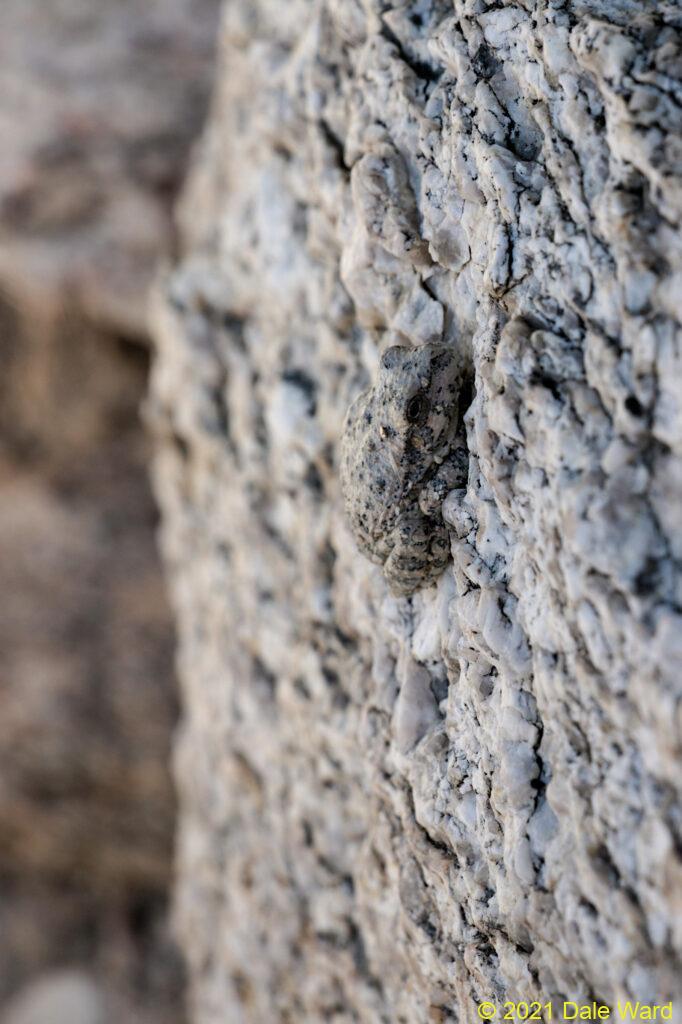 Canyon Tree frog (_Dryophytes arenicolor_), another angle emphasizing the verticality of the rock.
Canyon Tree frog (_Dryophytes arenicolor_), another angle emphasizing the verticality of the rock.
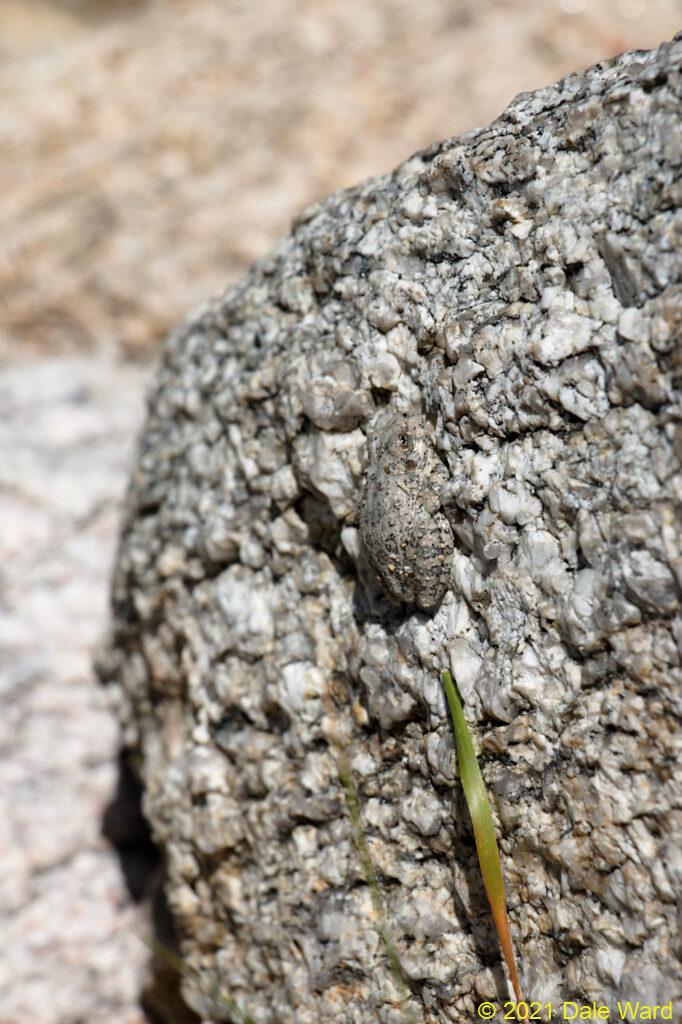 Another Canyon Treefrog (Dryophytes arenicolor) perched on the vertical face of a granite boulder.
Another Canyon Treefrog (Dryophytes arenicolor) perched on the vertical face of a granite boulder.
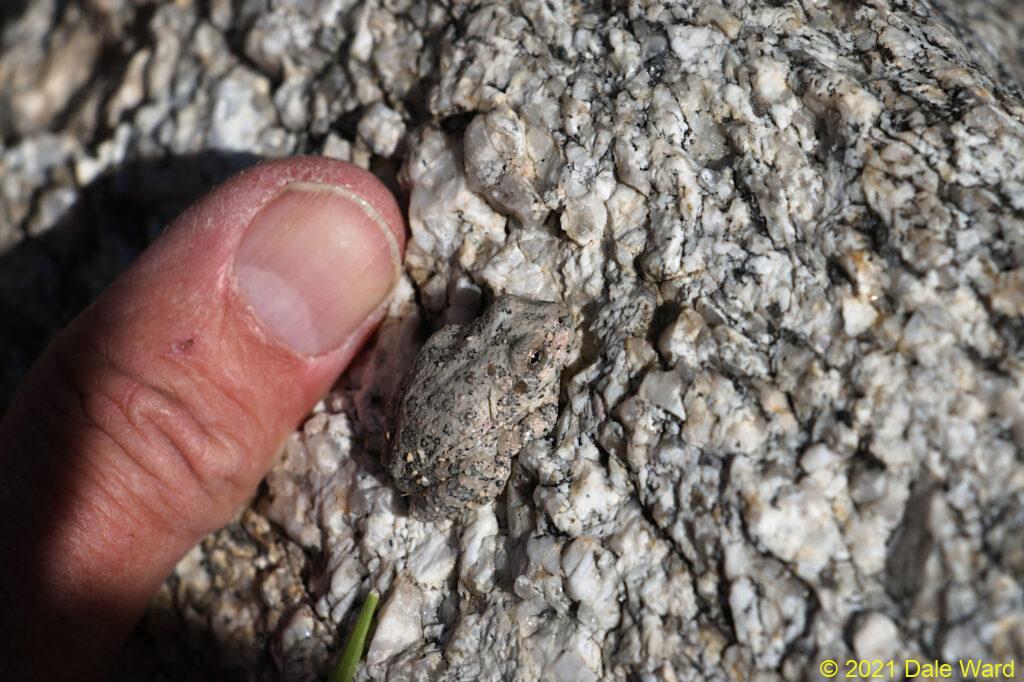 Canyon Treefrog (_Dryophytes arenicolor_) next to my thumb.
Canyon Treefrog (_Dryophytes arenicolor_) next to my thumb.
After an hour or so, I decided to head downstream to see if I could find any water nearer to the Recreational Area. I mean, what’s a Recreational Area without water, right?
Yes, indeed, there was water down there - in isolated pools.
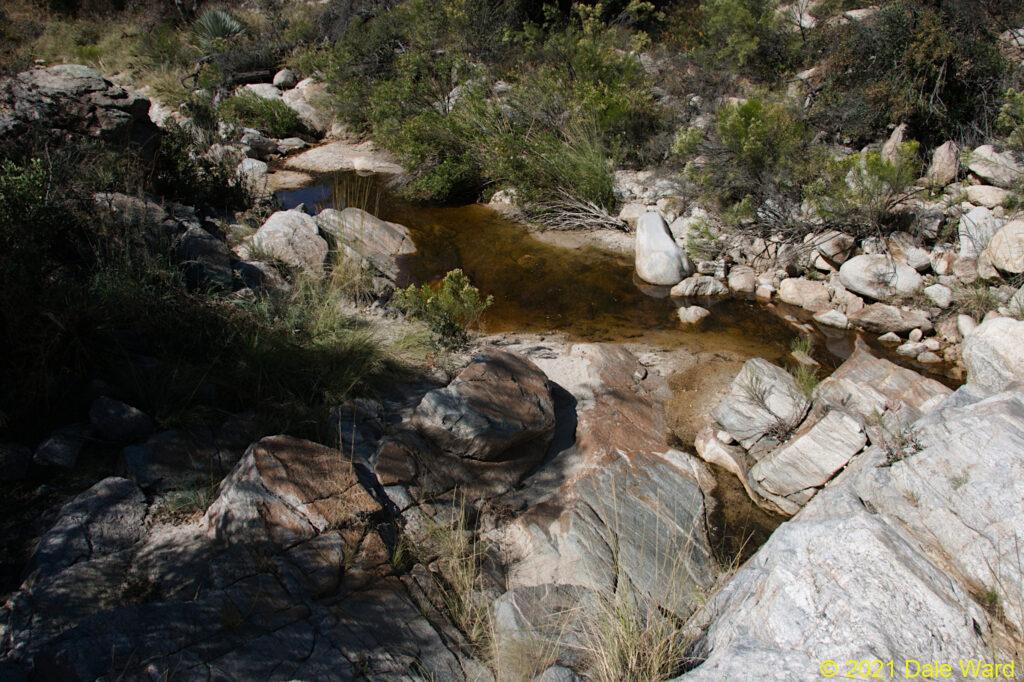 Isolated pool in the stream. There were numerous larger frogs on the boulders, mostly on the boulders on the upstream end of the pool.
Isolated pool in the stream. There were numerous larger frogs on the boulders, mostly on the boulders on the upstream end of the pool.
The frogs were mostly on the large boulders at the head of the pool. I wondered why that was so - there were other spots in along the pool that looked similar, at least to me.
Good thing I’m not a frog, I guess. I’d be at the wrong part of the pool.
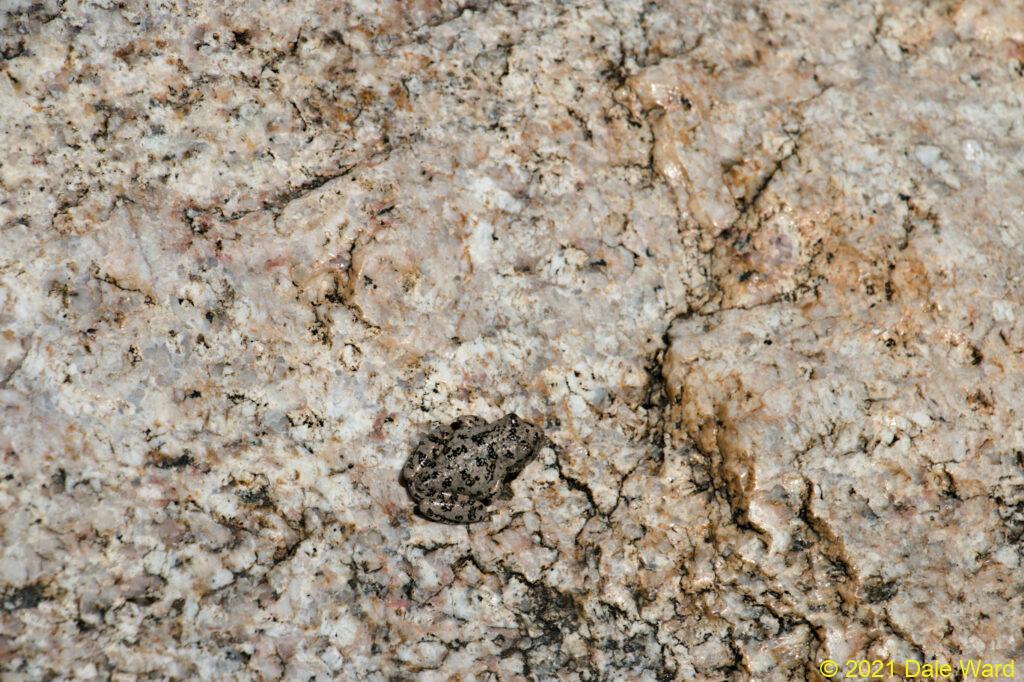 Canyon Tree frog (_Dryophytes arenicolor)_
Canyon Tree frog (_Dryophytes arenicolor)_
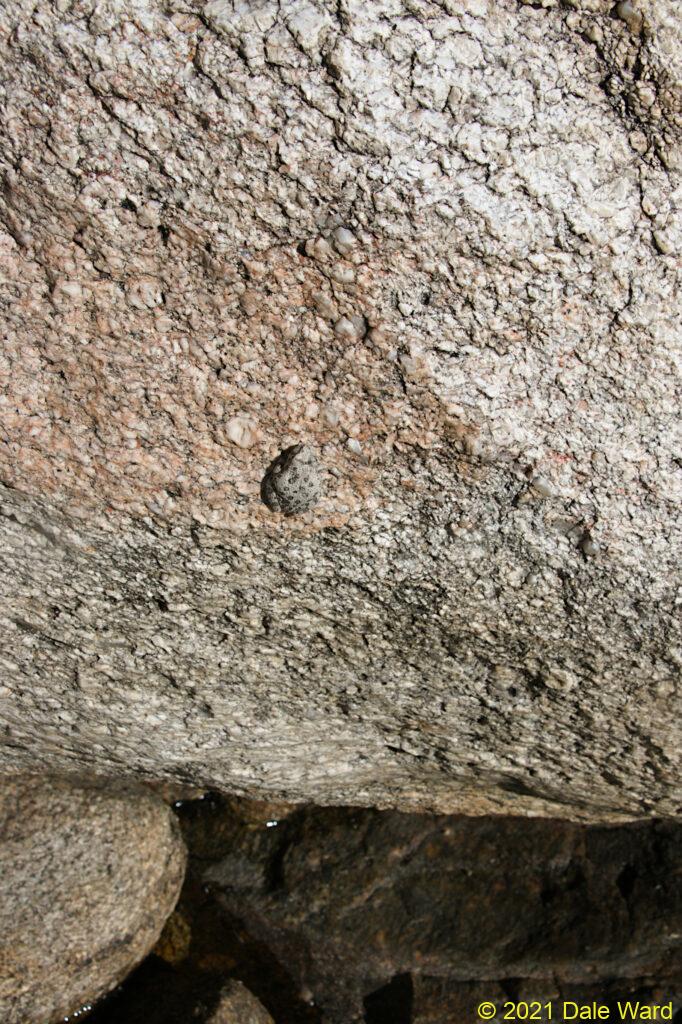 Canyon Tree frog (_Dryophytes arenicolor_) on large granite boulder face.
Canyon Tree frog (_Dryophytes arenicolor_) on large granite boulder face.
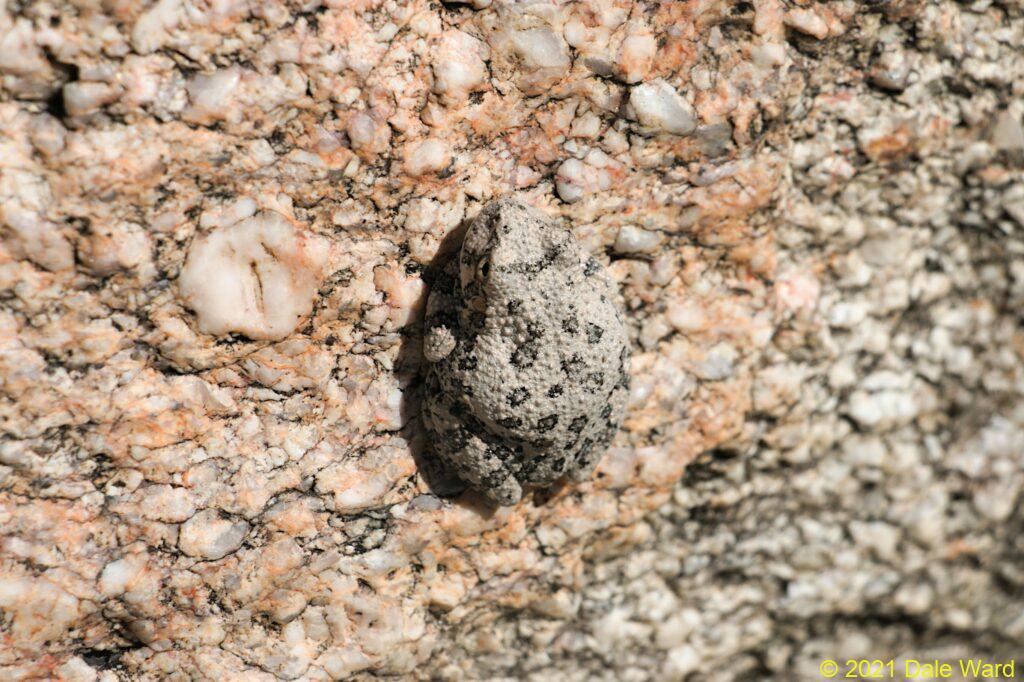 Canyon Treefrog (_Dryophytes arenicolor_)
Canyon Treefrog (_Dryophytes arenicolor_)
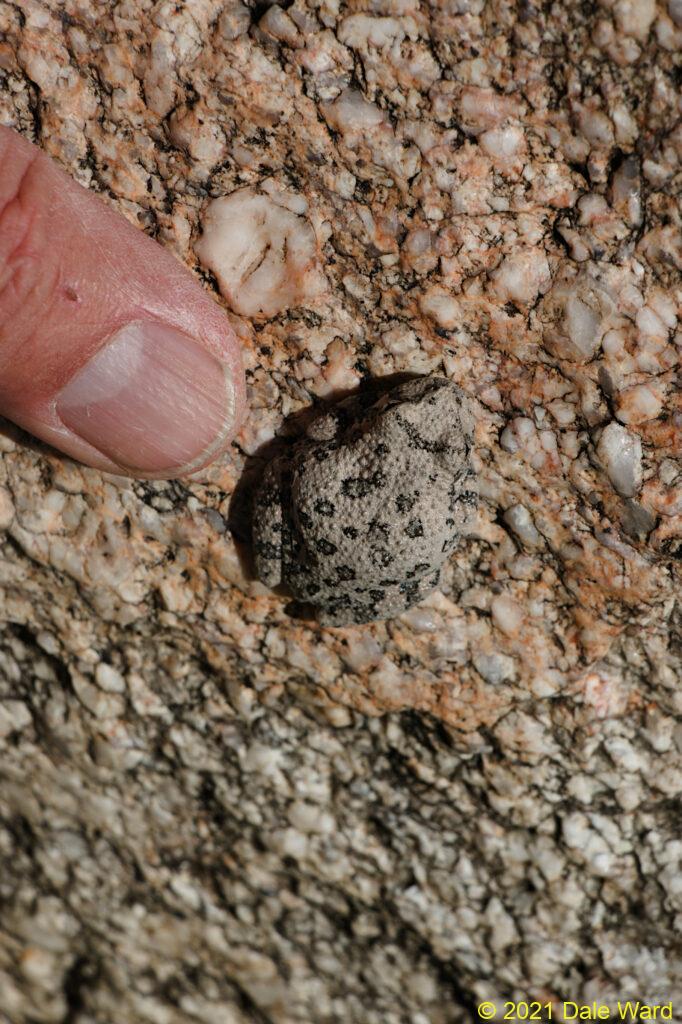 Canyon Treefrog (Dryophytes arenicolor). There’s something about these frogs that makes me feel compelled to put my fingers next to them, evidently.
Canyon Treefrog (Dryophytes arenicolor). There’s something about these frogs that makes me feel compelled to put my fingers next to them, evidently.
The frogs at the pool seemed larger than the frogs from the dry sections of the stream. I’m not sure if that’s because the ones at the pool were older, or if they were just puffed-up with water from the pool.
These frogs were also more reactive than the frogs in the dry sections of the stream. While the frogs in the dry stream bed didn’t jump when I photographed them, maybe one in three of the frogs at the head of the pool jumped.
 Canyon Tree frog (_Dryophytes arenicolor)_ looking for its next landing spot. This is my favorite photo of the day.
Canyon Tree frog (_Dryophytes arenicolor)_ looking for its next landing spot. This is my favorite photo of the day.
Some of the time, the frogs that jumped would launch themselves into the water. They wouldn’t try to swim very far when they landed - I suspect that I could have caught them pretty easily. There really wasn’t enough water for them to get away.
Most of the time, they would jump from their boulders to other vertical boulder faces. They would fly through the air, turning so that their sticky feet would contact their target boulder. I find that to be fascinating, the way the frogs were so aware of their surroundings and the target of their next jump. I mean, I can barely walk in a straight line much of the time, and these creatures are flitting through the air like super-heroes in a comic book.
A couple of times, the frogs leapt from their boulders and onto my arm. It was a very strange sensation. When the frogs landed, I would feel a slight impact, as if somebody had gently lobbed a dried pea at my arm. Then I’d feel a slight grasping sensation as their toes would grip my skin.
It was sort of like the feeling of there having been a paste or something on my skin that had dried. Not because the sensation was thick and heavy, but rather because of a sort of pulling, contracting sensation.
It was very cool.
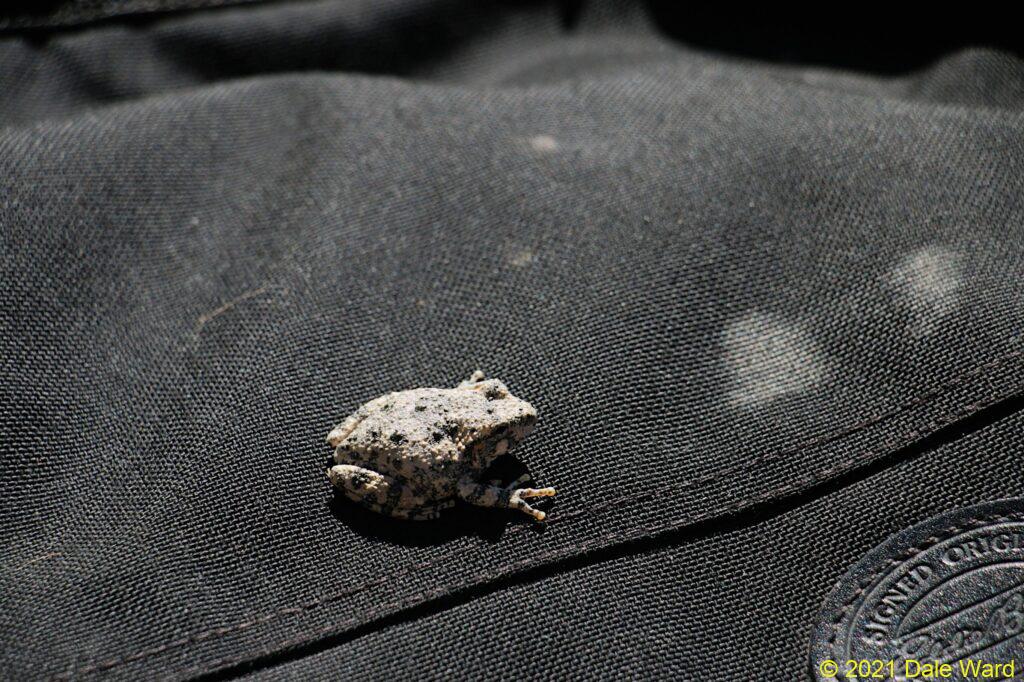 Canyon Tree frog (_Dryophytes arenicolor)_ that jumped onto my camera bag. a nice thing about this photo is that you can really see the bulbous pads on the tips of its front feet.
Canyon Tree frog (_Dryophytes arenicolor)_ that jumped onto my camera bag. a nice thing about this photo is that you can really see the bulbous pads on the tips of its front feet.
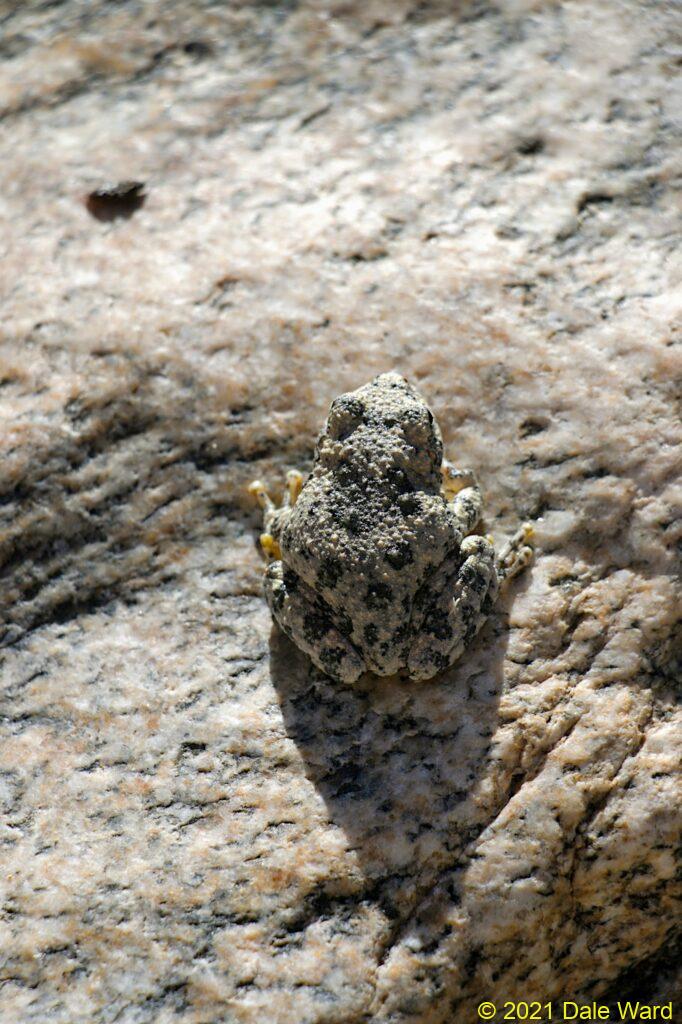 Canyon Tree frog (_Dryophytes arenicolor_) looking into the bright sun.
Canyon Tree frog (_Dryophytes arenicolor_) looking into the bright sun.
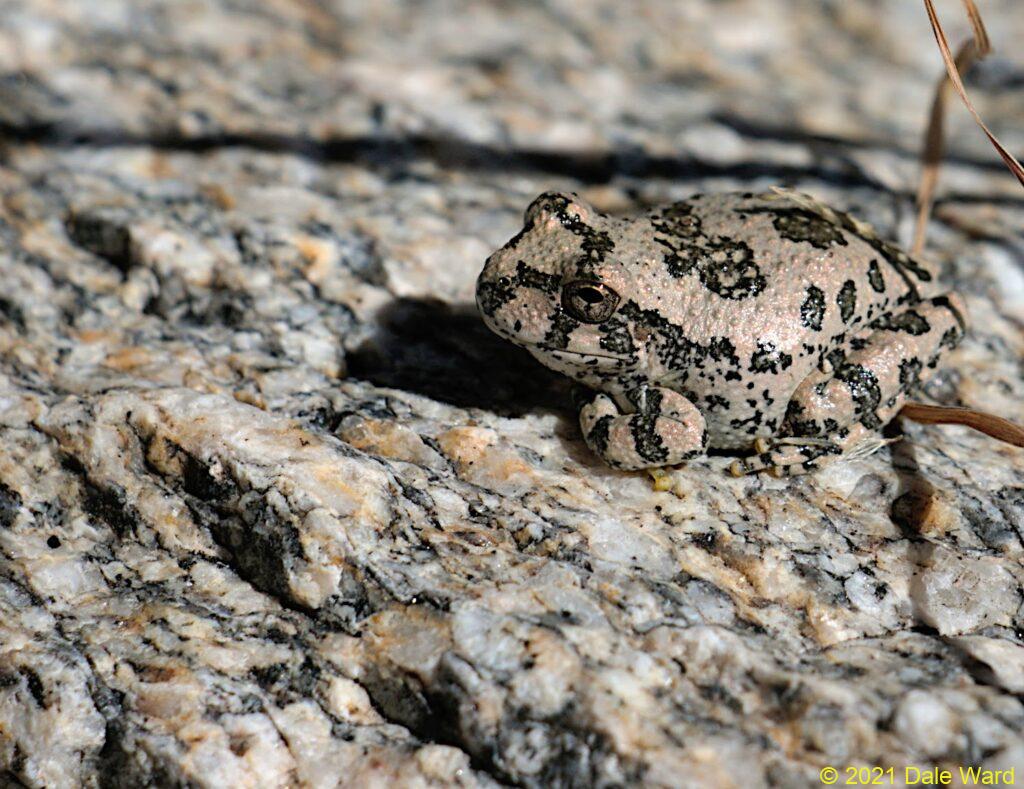 Canyon Tree frog (_Dryophytes arenicolor)_. What a beauty this one was. Even in this small area, you can see that the colors of the frogs are quite variable.
Canyon Tree frog (_Dryophytes arenicolor)_. What a beauty this one was. Even in this small area, you can see that the colors of the frogs are quite variable.
I spent a couple of hours in the stream bed, watching the frogs. Then I felt the pull of my schedule, and hit the road.
I was inordinately pleased to find these little fellows still in the stream.